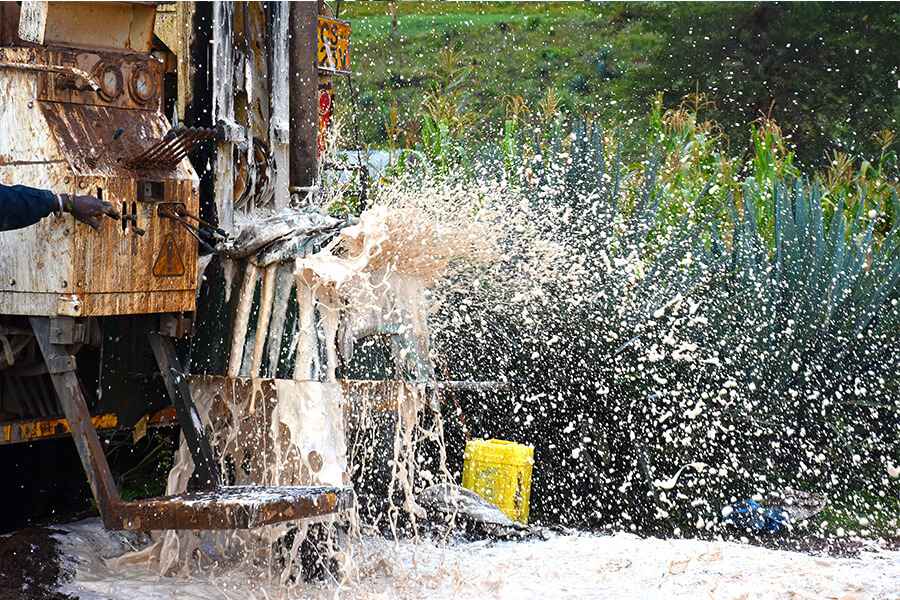The requirements for drilling a borehole in Kenya can vary depending on the specific location and local regulations. However,
General Requirements For Drilling A Borehole;-
1. Water Resource Management Authority (WRMA) Permit:
In Kenya, you will need to obtain a permit from the WRMA before drilling a borehole. The permit is required to ensure proper water management and environmental protection.
2. Geological Survey
It is recommended to conduct a geological survey of the area where you plan to drill a borehole. This survey helps assess the geology and hydrogeological conditions, which can determine the feasibility of the project.
3. Environmental Impact Assessment (EIA)
In some cases, an Environmental Impact Assessment may be required, especially if the borehole drilling project is significant or if it may have potential environmental impacts.
The assessment evaluates the potential environmental effects of the project and proposes mitigation measures.
4. Licensed Drilling Contractor
It is important to hire a licensed drilling contractor who has experience in borehole drilling in Kenya. The contractor should have the necessary expertise, equipment, and knowledge of local regulations.
5. Water Use Permit
Once the borehole is drilled and operational, you may need to apply for a water use permit to legally extract and use water from the borehole.
This permit is usually obtained from the WRMA or the local water authority.
6. Construction and Safety Standards
Ensure that the borehole construction adheres to local construction and safety standards. This includes using appropriate casing materials, sealing the borehole properly, and implementing safety measures to prevent accidents.
7. Compliance with Local Regulations
Familiarize yourself with any additional local regulations and requirements that may apply to borehole drilling in the specific county or area where you intend to drill.
This may include permits or approvals from local authorities or community engagement processes.
MUST READ: Borehole Drilling Companies, Prices, and Requirements In Kenya
Process Of Drilling A Borehole In Kenya
1. Hydrogeological survey
This is to establish the soil formation, depth and location of where the actual drilling will be done. It also assists in getting the required government approvals such as NEMA and WARMA certificates.
2. Actual Drilling
Actual drilling involves machine (drilling rig) mobilization and drilling. Drilling begins from above ground up to the recommended depth by the hydrogeologist.
During drilling, the casing is also done using steel or plastic casings. Borehole casing helps in preventing the borehole from collapsing and prevents impurities from contaminating the borehole water.
3. Test Pumping
Once drilling is complete, test pumping is done to determine the borehole yield or capacity in m3 per hour (m3/hr) This is done by continuously pumping water out of the borehole for 24 hours. Test pumping also helps in selecting the right pump for the borehole.
4. Water Chemical Analysis.
This is done to determine the suitability of the borehole water for drinking, irrigation, or any other use. Some boreholes produce pure neutral water while others may produce salty water which may require treatment before use.
5. Borehole Equipping.
This entails the installation of pumps in the borehole. Electric submersible, solar submersible, or diesel pumps may be installed depending on expert advice. Pipes immersed into the borehole may be uPVC pipes or HDPE pipes, depending on the depth.
6. Auxiliary Services
Includes optional extra services such as installation of pipes, plumbing, irrigation, tank tower construction, tank installation, etc. There is a separate quotation for these services.
It is essential to consult with relevant government agencies, such as the WRMA and the local county government, to obtain detailed information about the specific requirements and procedures applicable to your location.
'Want to send us a story? Submit to NAIROBIminiBLOGGERS via our Email nairobiminiblogger@gmail.com'

Drop Your Comments, What do you think About The Article?